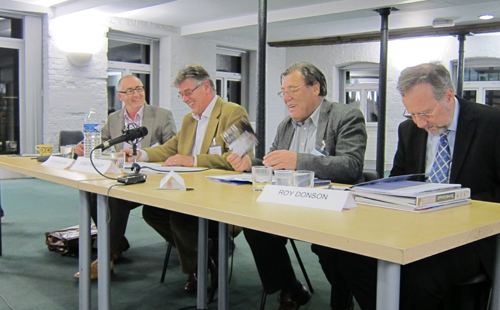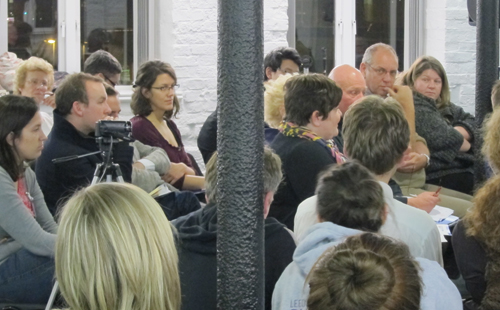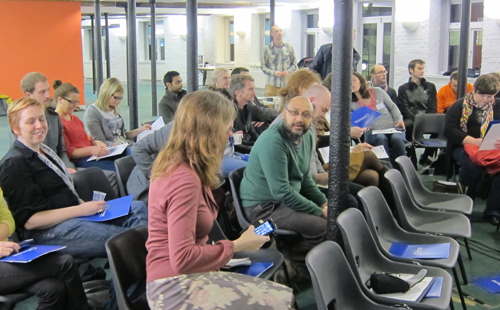Written by:
The Glass-House Debate Series held annually, encourages all those with an interest in great placemaking and community led initiatives to engage in a open, honest dialogue, to share their stories and listen to the experiences of others.
For the second debate in this year’s series, our chair Josef Ransley (a community leader, and district councillor from Kirdford, West Sussex) compelled the audience and speakers to provoke and be provocative. To stimulate the discussion on the debate question ‘What value do local people bring to placemaking?’, three speakers representing each community, design and development interests respectively, provided their thoughts.

Power, and who holds it in the placemaking ‘process’ was one of the major themes of the evening. Community representative and Chief Executive of social enterprise Goodwin Development Trust, Peter McGurn argued, that as things stand today, the making of places is something which is imposed on people; made for them, and not with them.
The power wrought by the various authorities regulating the creation of spaces and places can have a debilitating effect on community efforts to get involved in placemaking. ‘The small things that stop people taking power.. happens all the time where I live’, exclaimed one audience member. Advice came from friendly faces across the room. ‘Keep asking, keep at it. Make friends who have power now, Bring them into your own power set-up. Most people find it so refreshing to be asked about their local area. Find them in the places that have meaning for them as a community such as the local shop or pub.’

As a designer, urbanist John Worthington spoke frankly about his profession, maintaining that while architects make spaces – that may become meaningful places in the future – it is the people who inhabit the space that make them places.
Places are made by stories and finding space for these in design and planning processes is a challenge. Roy Donson from Barratt Developments outlined the programme of public consultation and set of design standards his company have introduced to change the way people think of them, and he spoke honestly about trying to find a balance between the realities of their commercial obligations and their obligation to involve local people in their development processes.
‘It takes a long time to build a place.’ In the power struggle around placemaking (visioning, design, planning, management etc.), there was consensus that placemaking is in itself an organic thing, and a long term and often regenerative process.
How then can placemaking thrive in the cyclical context of politics, and the politics of planning?
Suggestions touched on personal experience and local context. Could developers like Barratt not leave the ‘places’ they create an endowment to allow civic initiatives such as development trusts to emerge decades on from their involvement? How can three-year, government-sponsored regeneration schemes realistically deal with the individual complexities of places such as Hull, devastated by industrial decline?
The diversity of the professions involved in placemaking – architects, engineers, developers, planners etc. – did not many felt, reflect the diversity of many communities across the UK. Our panel of speakers were also challenged for their lack of diversity. However as Glass-House Chief Executive Sophia de Sousa countered, this forum of shared dialogue, and the lessons shared last night about bringing our collective life and professional skills together to face the enormous challenges that exist for everyone were important steps in bridging these gaps.

Roy Donson began his provocation with the statement: “I don’t think we are what you think we are”.
For those of us in the room at the close of the debate, it felt like many myths, on all sides had been dispelled, communication opened and advice shared about how we can find ways to work together to create great places for everyone.
With thanks to local partners East Street Arts and LS14 Trust.
The Glass-House Debate Series 2012/13 in partnership with The Academy of Urbanism continues in Liverpool on 5 February 2013.

